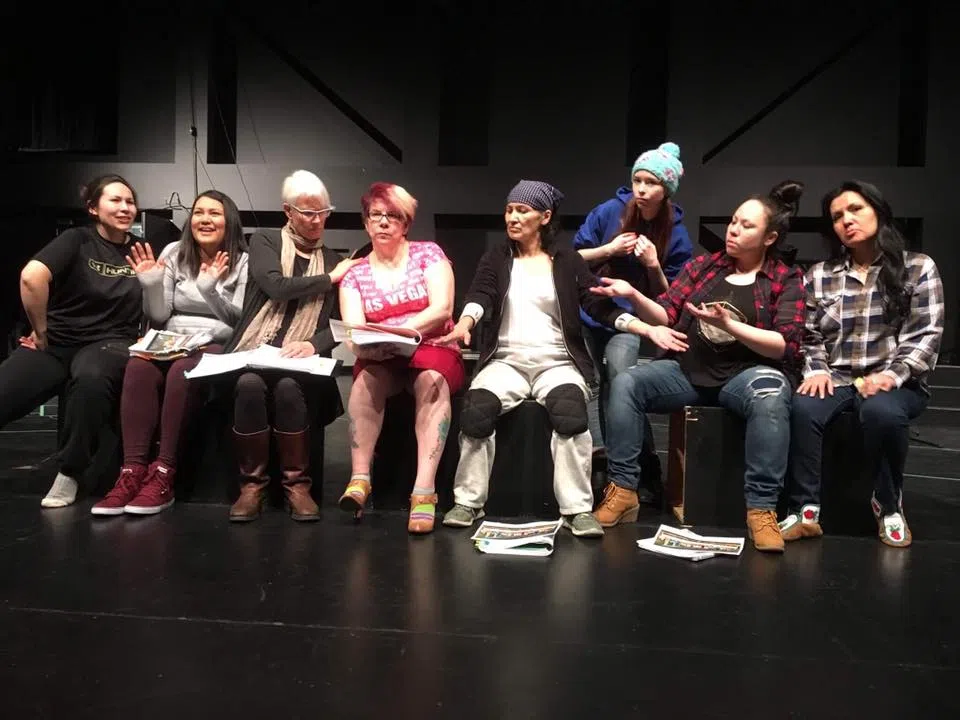
Director, actor say voices of Indigenous women no longer silent
Seven Indigenous sisters, intertwined, yet struggling in uniquely personal ways, come together in pursuit of a common – albeit unlikely – dream in Tomson Highway’s award winning play, the Rez Sisters. Director Roxanne Dicke and veteran actor Sophie Merasty thought, now more than ever, was the time to showcase Highway’s play and its all-female, and all First Nations cast.
According to Dicke, this is the first time an Indigenous cast has graced the E.A. Rawlinson stage. While the play focuses on the struggles of First Nations women living on the fictional Wasaychigan Hill Indian Reserve, Dicke and veteran actor Sophie Merasty argue it’s the story of us all, as we are one community.
Highway wrote his play in 1986, but both women felt the subject matter particularly poignant even today. Merasty said Highway spoke to her own personal pain, of which she channeled into her character Pelajia Patchnose. She said she learned of violence, and all the trappings of abuse, from a sorely young age; a story so typical of Indigenous women. The Truth and Reconciliation Commission, coupled with the Inquiry into Missing and Murdered Women, represents to her a national awakening.
“It’s great. It’s about time,” Merasty said. “I think it’s really important we hear the voices of Indigenous women, particularly because our voices had been silenced for so long.”


